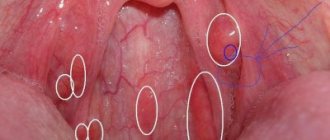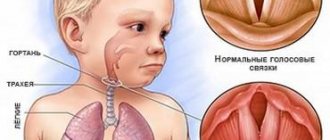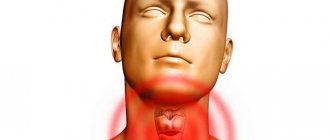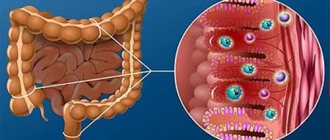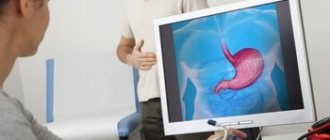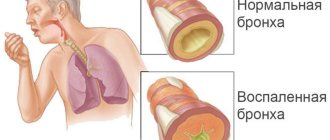General information
Pharyngitis is an inflammatory process of the pharyngeal mucosa of an acute or chronic nature.
Pharyngitis is manifested by soreness, discomfort and pain in the throat. It is customary to divide pharyngitis into types according to the localization of inflammation. The human pharynx has three sections - the nasopharynx (upper section), oropharynx (middle section) and hypopharynx (lower section). But such a division in most cases will be only conditional, because with the development of acute pharyngitis, diffuse damage to the mucous membrane occurs. The defeat of bacterial and viral infections occurs migratoryly and is mainly of a descending nature. If a patient develops chronic pharyngitis , then inflammation occurs in one of the above sections of the pharynx.
Treatment methods
The main group of medications for acute pharyngitis depends on the type of disease. For the infectious form, antiviral drugs are used, which should be taken from the first hours of the disease - Amizon, Arbidol. It is necessary to suck lozenges, which have antiseptic properties, 4-5 times a day - Doctor Mom, Septolete.
Treatment with antibiotics in the form of tablets and injections is rarely carried out; local antibacterial agents are used.
Means for local therapy for acute pharyngitis:
- Bioparox is an antibacterial and anti-inflammatory agent in the form of an aerosol;
- Imudon is a polyvalent antigenic complex that significantly accelerates the healing process;
- Hexoral - the drug is produced in the form of an aerosol and rinse solution. It is characterized by low toxicity, eliminates almost all types of bacteria that can provoke the development of pharyngitis.
Acute pharyngitis in children under one year of age is not treated with aerosols - there is a high probability of developing spasm of the glottis and acute respiratory failure. The best treatment for infants is plenty of warm drinks and treatment of the mucous membrane with antiseptic solutions. For young children, this disease is quite dangerous - due to severe swelling of the mucous membranes, suffocation can occur.
For effective treatment in adults and children, multivitamin mineral complexes - Duovit, Alphabet - must be used.
The most dangerous complication of acute pharyngitis is an abscess, which can form around the tonsils, on the back of the throat, in the tissues of the neck. Purulent abscesses are treated only with surgical intervention.
Against the background of pharyngitis, autoimmune reactions often develop, which can cause rheumatism, pathological changes in the kidneys, brain, and heart valves.
Treatment with folk remedies
Many traditional methods help to quickly get rid of pain and inflammation, some of them act faster than medications. For a quick recovery and to prevent the development of complications, it is necessary to wisely combine conservative and alternative treatment methods.
How to treat acute pharyngitis at home:
- Mix 5 g of coltsfoot leaves with 3 g of string leaves, add 1-2 drops of mint essential oil. Pour 220 ml of boiling water over the mixture and leave for an hour. Do inhalations or gargle 5-6 times a day.
- Inhalations with soda solution should be carried out 3-4 times a day until complete recovery. Dissolve 10 g of soda in 400 ml of boiling water and inhale the vapor for a quarter of an hour.
- Prepare a mixture of 5 g linden blossom, 10 g sage, 7 g calendula. Pour the mixture with 250 ml of boiling water, cool to a comfortable temperature, gargle 5-7 times a day.
Acute pharyngitis is a complex throat disease that often develops into a chronic form; without proper treatment, severe complications develop. To prevent the disease, it is necessary to stop smoking and drinking alcoholic beverages, not to inhale cold air through your mouth, and eat food at a comfortable temperature with a moderate amount of spices and seasonings.
Types of pharyngitis
The disease is divided into acute and chronic pharyngitis . In turn, taking into account the etiological factor, viral , fungal , bacterial , allergic , traumatic acute pharyngitis , as well as pharyngitis provoked by irritating factors are .
The classification of chronic pharyngitis is carried out according to the nature of the changes that appear in the mucous membrane. There are catarrhal (simple), atrophic (subatrophic) and hypertrophic pharyngitis. Quite often there is a combination of different types of pharyngitis. In this case, a mixed form of the disease is determined.
The most common type of acute pharyngitis is the catarrhal form of the disease during ARVI . In general, about 70% of pharyngitis occurs as a result of exposure to various viruses - coronaviruses , rhinoviruses , adenovirus , influenza and parainfluenza . Most often, pharyngitis develops under the influence of rhinoviruses. However, a viral infection causes only the primary development of the disease, which subsequently develops under the influence of a bacterial infection. In more rare cases, pharyngitis can also develop under the influence of other viruses.
Rinse solutions
Many people prefer to make their own rinses - based on soda, salt, and herbal infusions. There are also ready-made solutions for gargling on sale; they are suitable for the treatment of pharyngitis:
- Tantum Verde
. The active substance has an antiseptic effect, inhibits the production of inflammatory mediators in the lesion, and also has a strong antifungal effect. Use a tablespoon for gargling every three hours from the first days of illness. After use, be sure to spit out the solution. In case of severe burning, the solution can be diluted by half with water. The medicine should not be used in children under 12 years of age. - Hexoral
. The medicine suppresses the metabolism in bacterial cells, thereby preventing their reproduction. It helps against all types of pharyngitis, as well as stomatitis and tonsillitis. The solution should not be used by children under 3 years of age, pregnant or breastfeeding women. - Octenisept
. This is a unique medicine; it copes well with viruses and bacteria that settle in the throat during pharyngitis. To rinse, take 20 ml of the product and repeat the procedure three times a day.
Among the solutions for pharyngitis, pharmacies can also offer Eucalymin, Chlorophyllipt, Rotokan and a number of other drugs.
Causes of pharyngitis
Basically, pharyngitis in children and adults occurs due to inhalation of too cold or polluted air. Pharyngitis can also be triggered by some irritations with chemicals - tobacco, alcohol, etc. Infectious pharyngitis occurs due to exposure to microbes - streptococci , staphylococci , pneumococci . It also develops under the influence of a number of viruses and fungi. Sometimes the manifestation of pharyngitis causes the spread of infection from a focus of inflammation located near the pharynx. Pharyngitis often occurs in patients with rhinitis , sinusitis , and caries .
In some cases, the development of chronic pharyngitis occurs due to the presence of pathology of the gastrointestinal tract. This is possible with cholecystitis , gastritis , pancreatitis . Chronic catarrhal pharyngitis manifests itself as a consequence of acidic stomach contents entering the pharynx during sleep if a person has progressive gastroesophageal reflux disease . In such a situation, it is important to initially eliminate the underlying ailment. Also, heavy smoking is often the cause of atrophic changes in the pharyngeal mucosa.
The development of pharyngitis is often observed in people who suffer from constant difficulty breathing through the nose. The development of pharyngitis is directly influenced by constant mouth breathing and the effect of vasoconstrictor drops that flow into the pharynx.
Chronic pharyngitis also sometimes develops as a consequence of allergies, as well as in patients with various endocrine disorders, diabetes mellitus , as well as heart , pulmonary and renal failure .
Etiotropic therapy
To treat pharyngitis in adults, medications prescribed by your doctor include antiviral medications. These medications are the main ones in the treatment of the disease, but it is important to begin treatment immediately after identifying the first signs of the disease. Starting from the third day, there is no point in taking antiviral drugs, but if taken early, recovery will be faster and without complications (tracheitis, laryngitis, bronchitis).
There are different groups of antiviral drugs, any of them are suitable for viral pharyngitis:
| Group of drugs | Example of a medicine | Price, rubles |
| Inducers of interferon production | Kagocel | 230 |
| Interferons | Viferon | 300 |
| Medicines with direct antiviral action | Arbidol | 180 |
| Preparations based on antibodies to interferon gamma | Ergoferon | 380 |
| Immunomodulators of thymic origin | Taktivin | 820 |
Other well-known drugs for viruses are Genferon Light, Aflubin, Cycloferon, Ingavirin, Tsitovir 3. Young children are given Tsitovir 3 in the form of syrup or Viferon suppositories are placed.
The cause of the disease can also be a bacterial infection, but this happens rarely. Basically, this happens when a sore throat occurs, when pharyngitis becomes its addition (tonsillopharyngitis). In this case, you cannot do without taking antibiotics:
- Amoxiclav;
- Flemoclav;
- Sumamed;
- Suprax;
- Azitrox;
- Augmentin;
- Erythromycin.
A course of antibiotic therapy will cost 150-700 rubles, depending on the type of drug. In some cases, irrigating the throat with Bioparox spray is sufficient - it is a strong antibiotic and is intended specifically for the treatment of tonsillitis and pharyngitis. But since 2016, this drug has been banned; you can use its analogues: Miramistin, Hexoral and Tantum Verde.
Symptoms of pharyngitis
As the disease develops, a person experiences severe symptoms of pharyngitis. This disease is characterized by a pronounced sore throat , a feeling of constant dryness and discomfort. The patient may complain of pain during swallowing, which is most pronounced with an empty throat. Sometimes the development of pharyngitis is associated with severe general malaise and an increase in body temperature. If pharyngitis causes inflammation of the tubopharyngeal ridges, the patient may experience pain in the ears. During palpation of the cervical lymph nodes, the patient may feel their soreness and enlargement. There is also hyperemia of the posterior wall of the pharynx and arches of the palate. However, inflammation of the tonsils, which occurs with angina , is not observed.
Very often, acute pharyngitis is the first sign of a number of infectious diseases. Thus, measles , rubella , and scarlet fever .
With chronic pharyngitis, there is no increase in body temperature, and the patient’s general well-being does not deteriorate significantly. A person constantly feels a dry throat, soreness and a sensation of a lump in the throat, which causes him a constant desire to clear his throat. With pharyngitis, the patient has a persistent dry cough , which is significantly different from a cough with bronchitis. The constant feeling of discomfort in the chronic form of pharyngitis also causes the need to constantly swallow mucus, which accumulates on the back wall of the pharynx. As a result, the person becomes very irritable and cannot sleep normally and do normal activities without being distracted.
Symptoms of atrophic pharyngitis are expressed by severe dryness of the pharynx. Its mucous membrane is thinned, sometimes it is covered with dried mucus. Sometimes injected vessels are visible on the surface of the mucosa. Hypertrophic pharyngitis is characterized by the presence of foci of hyperplastic lymphoid tissue on the posterior wall of the pharynx. The tubopharyngeal ridges may also become enlarged. With an exacerbation of the disease, hyperemia and swelling of the mucous membrane are added to these symptoms of pharyngitis.
Chronic pharyngitis in children is sometimes expressed not only by a constant dry cough, but also by the presence of wheezing. Therefore, during examination, the doctor must clearly differentiate this condition from bronchial asthma.
How dangerous is acute pharyngitis?
The disease itself is accompanied by unpleasant symptoms. In addition, inflammation from the throat with inadequate treatment or its absence leads to serious complications. One of them is a retropharyngeal abscess. It is characterized by purulent inflammation of the lymph nodes and the area behind the pharynx. Most often it affects children. The disease causes fever, sweating, and weakness. Its characteristic feature is a forced tilt of the head to the side in which there is pain.
Another equally dangerous disease is acute articular rheumatism. It is accompanied by fever, inflammation of the joints, and loss of appetite. Improper treatment leads to diseases of the heart, lungs, and brain.
Acute pharyngitis can provoke abscesses that are localized around the tonsils, in the thickness of the tissue, on the wall of the throat. Their appearance is accompanied by elevated temperature, which does not go away even with external recovery.
Diagnosis of pharyngitis
An experienced otorhinolaryngologist can diagnose both acute and chronic pharyngitis without much difficulty. Initially, it is necessary to examine the patient. For this purpose, pharyngoscopy - examination of the mucous membrane of the patient's throat. In some cases, the patient is prescribed additional bacteriological or virological testing. To carry it out, a throat swab is used.
It should be noted that if there are symptoms of pharyngitis, patients rarely immediately turn to a specialist, preferring to treat the disease with home remedies or take medications without a doctor’s prescription. But even with some relief of the condition, the cause of pharyngitis will not be eliminated. That is why it is important to conduct a timely examination and prescribe the correct treatment for pharyngitis.
What to do to heal faster?
To quickly cope with the disease and eliminate the unpleasant symptoms of pharyngitis, it is important to follow a number of rules.
- Do not breathe through your mouth, and if nasal breathing is difficult, be sure to simultaneously treat your runny nose.
- Avoid overstraining the vocal cords – talk less, don’t shout.
- Stop smoking and avoid being around other people who smoke.
- Follow a diet. For pharyngitis, the diet involves avoiding all dishes and products that irritate the mucous membrane of the throat. Food should be soft and warm, but not hot. Fried, spicy, salty and smoked foods should be excluded from the menu during the treatment period. You should not drink carbonated drinks.
- Drink plenty of warm liquids. This could be still alkaline water, tea with lemon, milk with honey. Rosehip decoction, herbal teas with linden, raspberries, currants, fruit and berry juices, and compotes are useful.
- Avoid being in a dusty, stuffy, hot room. Humidify the air in the room - regularly ventilate, carry out wet cleaning.
There is no need to remain in bed if you have pharyngitis, but you also cannot endure the disease on your feet - this will only prolong the duration of the disease or provoke complications.
Treatment of pharyngitis with folk remedies
Traditional medicine can also tell you how to treat pharyngitis. There are a number of herbal decoctions that can be used both for oral use and for gargling. As a drink in acute conditions, it is advisable to use a decoction of raspberry leaves, chamomile, mint, and blackberry tea.
To prepare a herbal mixture that is effective in treating pharyngitis and is used for rinsing, you can take sage and mint leaves, chamomile flowers, and fennel fruits in equal parts. One tablespoon of the crushed collection should be poured with a glass of boiling water and left for twenty minutes.
Another collection is prepared in the same way, which includes calamus root, flax seeds, chamomile flowers, and sweet clover herb.
Treatment of pharyngitis with folk remedies also involves the use of some decoctions and infusions of herbs for inhalation. For this purpose, infusions of chamomile, oak bark, sage, pine buds, and calendula are often used. To prepare herbal infusions that are used for inhalation, you should take 10 g of crushed raw materials per glass of boiling water. Such inhalations last five minutes and can be done several times a day, using different herbs.
In addition, for any form of pharyngitis, traditional medicine recommends gargling with raw potato juice, an infusion of blueberry leaves and a decoction of berries.
If a person suffers from atrophic pharyngitis, then oil inhalations can improve his condition. Peach, olive, and menthol oils . You can prepare a solution for inhalation at the rate of 5-10 drops of oil per glass of boiling water. You need to inhale the vapors through a funnel-shaped tube several times a day.
Soda inhalations (one teaspoon of soda per glass of water) significantly soften dry throat.
How to restore the throat mucosa after pharyngitis
Prolonged swelling or dryness, the impact of pathogenic microorganisms and their metabolic products on the mucous membranes lead to disruption of their structure and functions. This manifests itself, first of all, as unpleasant sensations and pain (especially after atrophic pharyngitis). The doctor will tell you how to restore the mucous membrane, but most often they recommend lozenges Imudon or Lizobact, Yox spray with allantoin.
Of the folk methods, lubrication with sea buckthorn oil for pharyngitis is most effective. Regular treatment of the pharynx with tampons with this product prevents dryness, heals microtraumas, and softens the mucous membrane. Moisturizing inhalations and rinsing with propolis solution are also useful.
Prevention of pharyngitis
To prevent pharyngitis, it is important to ensure general hardening of the body, try to avoid the influence of harmful factors, and also get rid of bad habits - smoking, alcohol abuse. If a person, for certain reasons, experiences difficulty in nasal breathing, then this problem must be adequately treated in order to avoid pharyngitis in the future. It is equally important to eliminate all dental problems in a timely manner and treat dental caries . It is also necessary to restore the body’s impaired defenses, for which in some cases medications with immunocorrector .
Medicines for sore throat
Sprays, solutions and lozenges have a complex effect on the mucous membrane of the throat:
- antiseptic;
- antibacterial;
- anti-inflammatory;
- emollient (envelop the mucous membrane, prevent the appearance of a dry, irritating cough);
- moisturizing;
- regenerating (promote the restoration of cells of damaged mucosa);
- immunomodulatory (increase local immunity).
Sprays for irrigation
Treatment with sprays and aerosols is highly effective, since when the medicine is sprayed, the smallest particles of the substance completely cover the mucous membrane and penetrate hard-to-reach places.
Depending on the type and severity of inflammation, doctors may prescribe medications:
- Tantum Verde;
- Givalex;
- Hexoral;
- Bioparox.
Sprays are irritating, can cause laryngospasm (spasm of the larynx) and are not used in the treatment of children under 3 years of age.
When sprayed, the particles of the substance penetrate deep into the respiratory tract, so sprays can also be used in the treatment of laryngitis (inflammation of the larynx)
Rinse solutions
Antiseptic rinses are presented in a huge assortment at the pharmacy. But it is better to entrust the choice of remedy to a doctor.
Most often, in the treatment of pharyngitis in adults, specialists use solutions:
- Hexoral;
- Stopangin;
- OKI;
- Chlorophyllipt;
- Rotokan;
- Miramistin.
Before you start rinsing, you need to carefully read the instructions: some products are produced ready for use, others need to be diluted yourself
Therapeutic gargling solutions differ in composition, mechanism of action, contraindications and possible side effects, but all of them, if used correctly, effectively cope with sore throats.
Lozenges
Many lozenges and lozenges have a combined composition. As a rule, they contain an antibacterial or antiseptic component, anesthetic, plant extracts and oils. These remedies relieve inflammation, relieve pain, and soften the throat mucosa. The pharmacy range of tablets, lozenges and lozenges for sore throat is represented by the following drugs:
- Septolete;
- Strepsils;
- Sebidin;
- Neo-angina;
- Falimint;
- Faringosept;
- Lysobacter;
- Grammidin;
- Decathylene;
- Trachisan.
These medications are available at pharmacies without a doctor's prescription. But it is better to consult a specialist, since each drug has its own restrictions on use. Typically, lozenges and lozenges are contraindicated in children under 3–5 years of age. Some products are prohibited for use by pregnant and lactating women. Also, the list of contraindications may include hypersensitivity to the components of the drug, a tendency to bronchospasm, and gastric ulcer in the acute phase.
Complications of pharyngitis
Chronic pharyngitis often becomes a complication of acute pharyngitis, which was not cured in time. At the same time, the chronic form of the disease over time provokes the development of a number of other unpleasant diseases. With streptococcal pharyngitis, a complication can be a peritonsillar abscess, in which there is soreness in the throat, unilateral swelling and erythema.
Complications of chronic pharyngitis are often laryngitis , tracheitis (respectively, inflammatory processes of the larynx and trachea). of chronic bronchitis is also possible .
Some forms of pharyngitis (in particular, the form of the disease caused by group A b-hemolytic streptococcus) subsequently also provoke the development of acute articular rheumatism .
Another unpleasant complication of chronic pharyngitis is a general decrease in quality of life. A patient with a chronic form of the disease cannot speak for a long time. Therefore, for people whose profession involves the need to give lectures and other types of public speaking, such an illness can become a very big problem. In case of chronic pharyngitis, tonsil removal is contraindicated. Therefore, inflammation can worsen over time, and as a result, the timbre of a person’s voice changes noticeably.
How to quickly cure pharyngitis at home
Inflammation of the larynx is treated on an outpatient basis, and if medical recommendations are followed, it goes away quickly. The use of antimicrobial agents helps to cope with the cause of the disease, and symptomatic therapy alleviates the condition of pharyngitis. However, recovery may be delayed if a few simple conditions are not followed.
Treatment of pharyngitis at home will give results faster if:
- stay at home during the first days, especially in cold weather;
- ensure vocal peace by communicating as little as possible;
- follow a diet rich in vitamins and consisting mainly of soft and warm foods;
- drink plenty of liquid that does not irritate the pharyngeal mucosa;
- eliminate harmful effects such as smoking and alcoholic beverages.
These simple recommendations, in combination with other treatment methods, really speed up recovery and prevent the development of complications.

